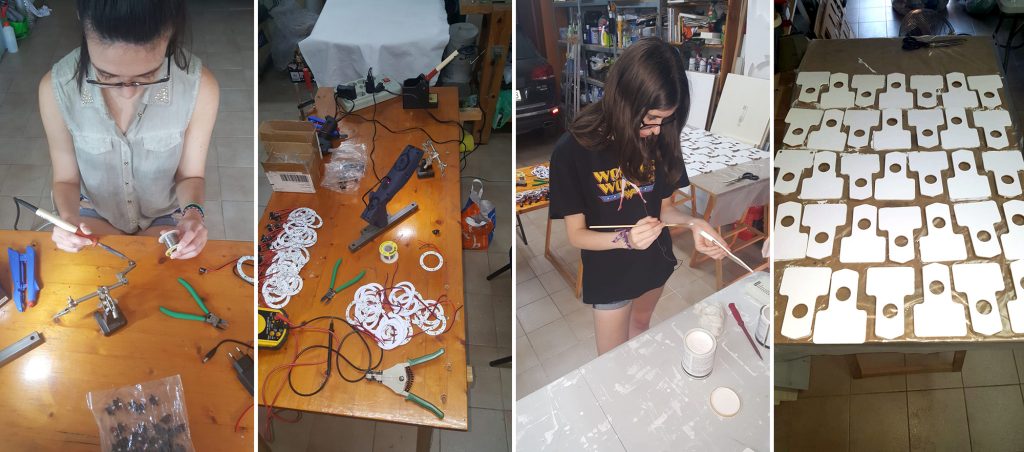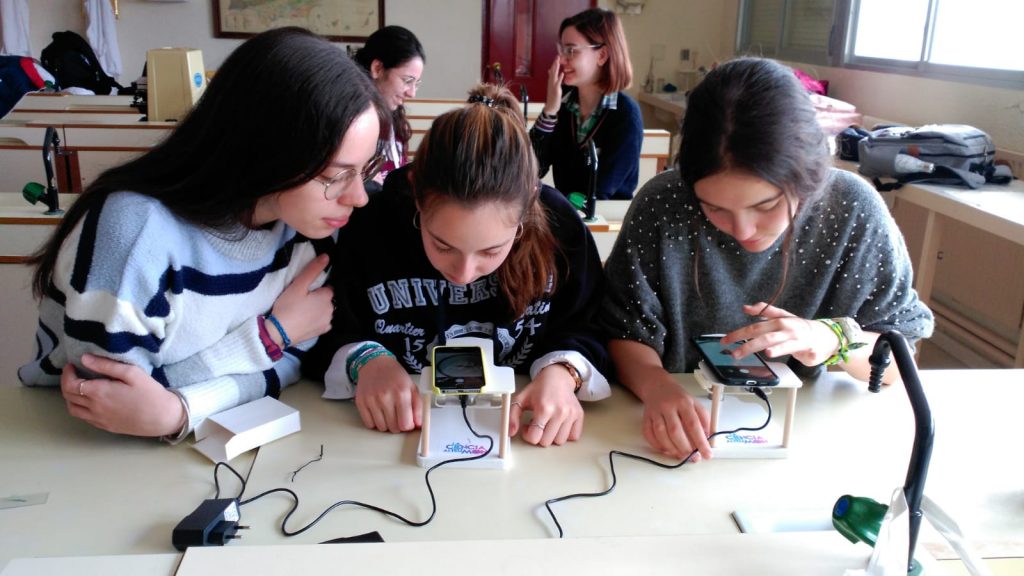 In order to facilitate fieldwork for students and teachers, especially in schools where the type of stereoscopic magnifying glasses suitable for Drosophila classification are not available; and to promote science and technology among girls, we developed “Magni-Fly” with the help of a talented and young citizen participating in the project. Magni-Fly is a base with a magnifying lens that allows the use of a mobile phone as a stereoscopic magnifier for fieldwork. Despite the existence of microscopes and magnifying glasses that can be readily attached to mobile phones, none of the models available so far have the necessary characteristics needed to classify the study organisms of this project.
In order to facilitate fieldwork for students and teachers, especially in schools where the type of stereoscopic magnifying glasses suitable for Drosophila classification are not available; and to promote science and technology among girls, we developed “Magni-Fly” with the help of a talented and young citizen participating in the project. Magni-Fly is a base with a magnifying lens that allows the use of a mobile phone as a stereoscopic magnifier for fieldwork. Despite the existence of microscopes and magnifying glasses that can be readily attached to mobile phones, none of the models available so far have the necessary characteristics needed to classify the study organisms of this project.

This activity was led by Irene González (Barcelona), a biotechnology degree student. Together with her family, they embarked on the 3D design and development of this device, the Magni-Fly. Irene also had advice from and the support of the scientists and coordinators of #MelanogasterCTF, so that the device would meet the specific needs and parameters of the project.

More than 60 prototypes of the “Magni-Fly” device will be distributed amongst the schools across the different regions participating in the citizen science project, according to the needs of each educational center. The feedback received from the teachers and students so far has been very positive.


We would like to highlight that Irene González, who began her collaboration with the design of the Magni-Fly device, now carries out her career internship as part of the research team of the Laboratory of Functional and Evolutionary Genomics (González Lab) of the Institute of Evolutionary Biology (CSIC-UPF).

